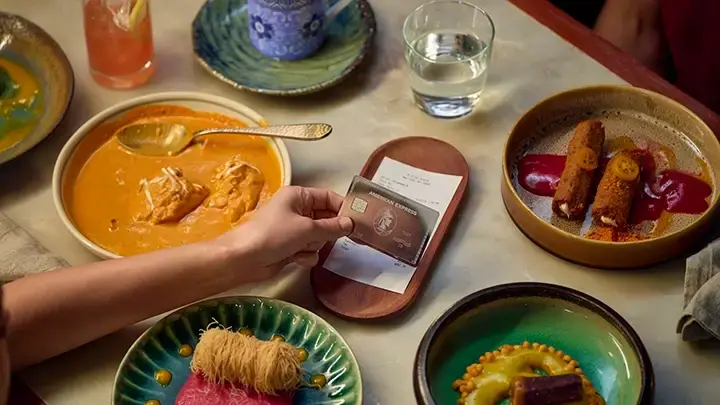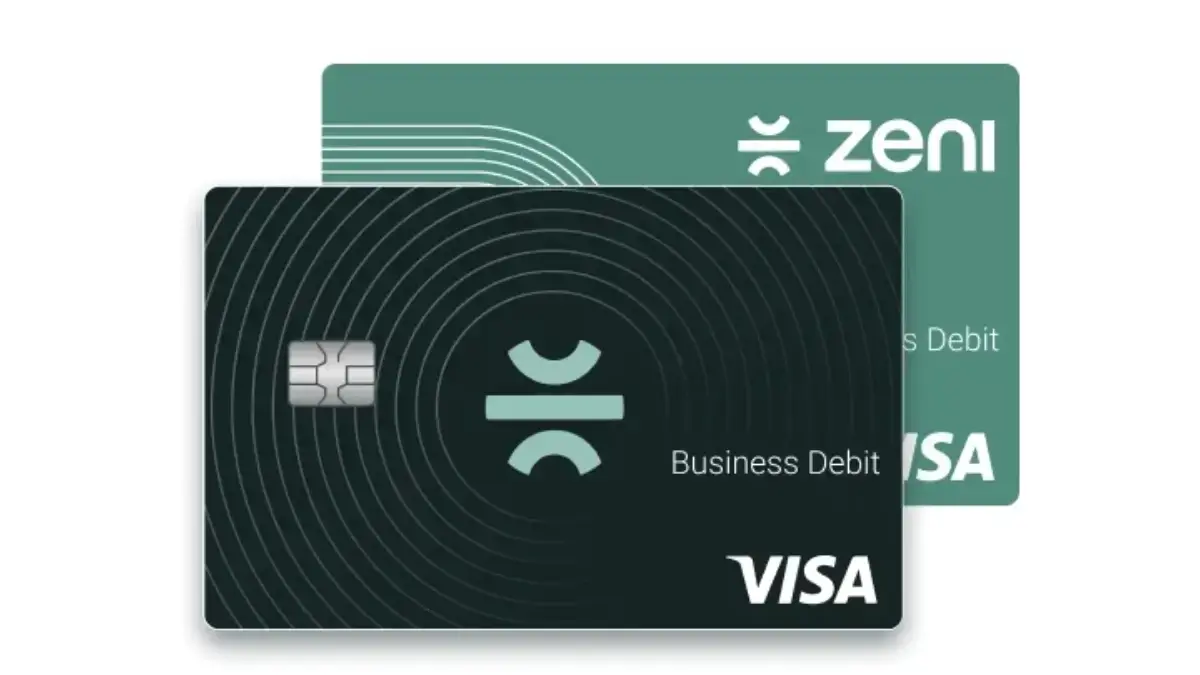
Kudos has partnered with CardRatings and Red Ventures for our coverage of credit card products. Kudos, CardRatings, and Red Ventures may receive a commission from card issuers. Kudos may receive commission from card issuers. Some of the card offers that appear on Kudos are from advertisers and may impact how and where card products appear on the site. Kudos tries to include as many card companies and offers as we are aware of, including offers from issuers that don't pay us, but we may not cover all card companies or all available card offers. You don't have to use our links, but we're grateful when you do!
Does Closing a Credit Card Hurt Your Credit? (2025 Guide)
July 1, 2025


Closing a credit card account might seem simple – you no longer want the card, so why not cancel it? But before you cut up that card, it’s important to understand how closing a credit card can affect your credit score, especially in 2025’s credit environment. Credit cards play a significant role in your overall credit profile, and shutting one down can have both positive and negative repercussions.
In this guide, we’ll explain what happens to your credit when you close an account, reasons you might (or might not) want to close a card, and how to do it the right way if you decide to proceed. We’ll also share tips – including how Kudos, your financial companion, can help you manage your cards and make the most of them, possibly eliminating the need to close accounts at all.
How Closing a Credit Card Affects Your Credit Score
When you close a credit card, several factors of your credit score can be impacted:
- Credit Utilization Ratio: This is the percentage of your available credit that you’re using. It’s a significant component of your FICO score. By closing a card, you reduce your total available credit.
- Length of Credit History: The age of your credit accounts matters. Closed accounts can remain on your credit report for many years, and if it was a well-aged account in good standing, it will still count in your history for a while. However, eventually (usually after 7-10 years), it may drop off your report. If that was one of your oldest accounts, losing it could shorten your average account age, which might slightly lower your score. In 2025, credit scoring models still value long-standing credit relationships.
- Mix of Credit: Having a variety of credit types (credit cards, loans, etc.) is good for your score. Closing a credit card might slightly affect the “mix” component, but this is usually minor unless that card was your only revolving credit account.
- Future Applications: Lenders seeing a recently closed account might wonder why it was closed. Did the issuer close it or you? While not usually a major concern, a suddenly closed account might prompt questions during manual underwriting (for example, mortgage applications often ask for explanations of recent changes).
In summary, closing a card can cause a temporary score dip mainly due to utilization changes. If you had a $0 balance and plenty of other available credit, the impact may be minimal. But if you carry balances on other cards, be cautious.
When Does It Make Sense to Close a Credit Card?
There are valid reasons to close a credit card, even if there’s a potential credit score impact. Some scenarios include:
- High Annual Fee, Not Worth It: If a card charges a hefty annual fee and you’re no longer getting value from its rewards or perks, closing it might save you money. For instance, a travel card with a $500 annual fee that you got for a one-time bonus might not be worth keeping in year two if you aren’t utilizing its benefits.
- Card You No Longer Use: Maybe it was a starter card with a low limit or a store card you don’t shop at anymore. If it’s cluttering your financial life and you don’t need it, you might consider closing. Just weigh the credit history benefit of keeping it open versus the simplicity of closing.
- Avoiding Temptation or Fraud Risk: Some people close cards to avoid the temptation of overspending. If having that open credit line is too much temptation, it could be healthier to eliminate it. Others might close an account if they’ve had fraud issues, preferring to cut ties with a compromised account (though usually issuers can just replace the card number without closing the account entirely).
- Life Changes: Maybe you’re consolidating finances with a spouse and you both have similar cards, or you want to streamline to just one or two cards that cover all your needs. Or you’re moving abroad and a certain card won’t be useful.
In these cases, the decision might extend beyond just credit score math – it could be about financial wellbeing or convenience. If you do choose to close, just be strategic about it (as we’ll cover below).
Reasons to Keep a Card Open (Even If Unused)
On the flip side, there are good reasons to keep a credit card account open:
- Boosting Credit Utilization: An unused card with a high credit limit can help keep your overall utilization low. Even if you don’t use the card much, its available credit is padding your score by making it look like you’re using a small portion of your limits.
- Long Credit History: If it’s one of your oldest cards, it’s contributing positively to the length of your credit history. Closing it might eventually shave a few points off your score when it falls off your report. Sometimes keeping that account open (even with minimal or no use) is beneficial for your credit age.
- Emergencies or Backup: An extra card can be a backup in case another card is lost or if you have an emergency expense and need additional credit temporarily.
- Retention Offers: Occasionally, when you call to close a card, the issuer might offer incentives to keep it open, like waiving the annual fee for a year or providing extra rewards. If you’re open to it, you might actually gain extra value by attempting to close – and then deciding to keep it after an offer.
If the card has no annual fee, there’s often little harm in keeping it open. You could stash it in a drawer if you’re worried about overspending. Just remember to use it once in a while (say, a small purchase every few months) to keep the account active so the issuer doesn’t close it for inactivity.
Kudos can help by tracking all your cards, even those you rarely use, and reminding you of any upcoming fees or inactivity – acting as a gentle nudge to either use it or decide if it’s truly not needed.
How to Safely Close a Credit Card (If You Must)
If you’ve decided that closing the card is the right move, follow these steps to minimize negative effects:
- Pay Off the Balance: You generally can’t close a card with an outstanding balance. Even if you could, it’s best to fully pay it off first. This way, you’re not juggling payments on a closed account.
- Redeem Any Rewards: If the card has reward points or cash back, use them up before closing. You might lose them once the account is shut.
- Consider Timing: If you’re planning to apply for a major loan (like a mortgage) very soon, avoid closing the card until after. You want your credit score as high and stable as possible during important credit applications.
- Contact the Issuer: Call the customer service number and tell them you want to close your account. They may ask why and possibly offer a retention deal. If you’re sure, confirm that you want it closed. Get confirmation of the $0 balance and that the account will be reported as closed at customer’s request.
- Check Your Credit Report: A month or two after closure, check your credit reports (you can do this for free) to ensure the card is marked “Closed” and the reason might say “Closed at consumer’s request.” This confirms it wasn’t closed by the issuer for, say, default. Also verify the balance is $0.
- Secure Records: Keep a record of the closure confirmation (date, who you spoke to, any reference number). Destroy the physical card once you’re sure it’s fully closed (shred it or cut it up).
By following these steps, you maintain control over the process and can prevent surprises. Additionally, try to spread out any other big changes. For example, don’t close three cards at once – that could cause a noticeable score drop from the combined reduction in credit limits.
Making the Most of Your Cards with Kudos
Before you close a card, consider if you’re fully utilizing its potential. Sometimes a card seems useless until you realize it has perks you weren’t taking advantage of (like insurance benefits or rewards categories). Or maybe you’re not using it because you forget about it. The Kudos app can actually help here: it keeps all your credit card benefits and rewards info in one place, showing you which card to use for which purchase.
leveraging such insights, a “useless” card could become valuable. For instance, maybe that old card gives 5% on groceries – with a little reminder from Kudos, you could use it for your supermarket runs and save money, turning a candidate for closure into a workhorse.
However, if after all considerations you still want to close it, rest assured that with good credit habits your score will rebound. The hit from closing a card is usually not permanent. Continue to pay your other obligations on time, keep balances low, and your credit will stay healthy.
Do Credit Cards Hurt Your Credit FAQ
How does closing a credit card impact my credit score?
Closing a credit card can have a temporary negative impact on your credit score primarily due to changes in your credit utilization ratio. By reducing your total available credit (especially if that card had a high limit), any existing balances on other cards now make up a larger percentage of your available credit, which can lower your score.
Should I close an unused credit card account?
If the unused credit card has no annual fee and isn’t causing any issues, many experts suggest keeping it open, as it can help your credit score by contributing to a lower utilization ratio and a longer credit history. An unused card can be harmless and even beneficial to your credit profile. However, if the card has an annual fee that you feel isn’t worth paying, or if having it tempts you to overspend, you might consider closing it.
What happens if I close a credit card with an outstanding balance?
In most cases, you cannot completely close a credit card account with an outstanding balance – you’d need to pay off the balance (or transfer it elsewhere) as part of the closing process. If you initiate a closure while still carrying a balance, the account might be closed for new purchases, but you’ll continue to receive bills and are obligated to pay off that remaining balance (including any interest that accrues) over time.

Supercharge Your Credit Cards
Experience smarter spending with Kudos and unlock more from your credit cards. Earn $20.00 when you sign up for Kudos with "GET20" and make an eligible Kudos Boost purchase.
Editorial Disclosure: Opinions expressed here are those of Kudos alone, not those of any bank, credit card issuer, hotel, airline, or other entity. This content has not been reviewed, approved or otherwise endorsed by any of the entities included within the post.





























.webp)
.webp)
.webp)
%20(1).webp)
.webp)
.webp)


.webp)